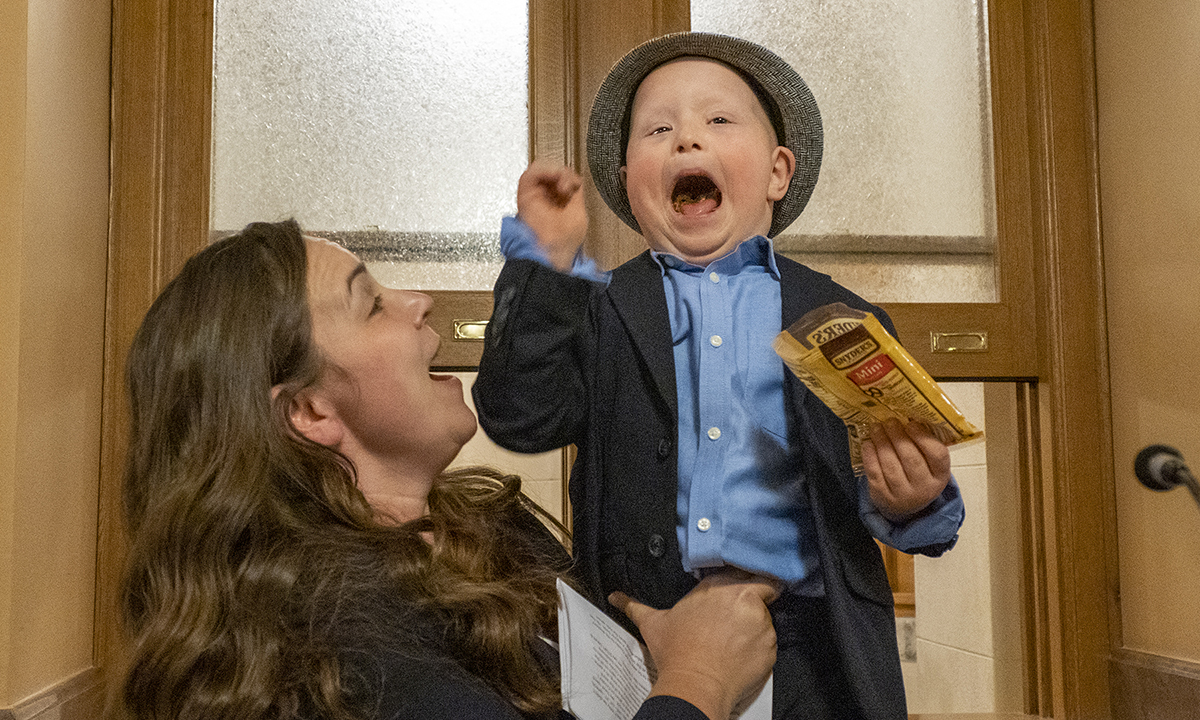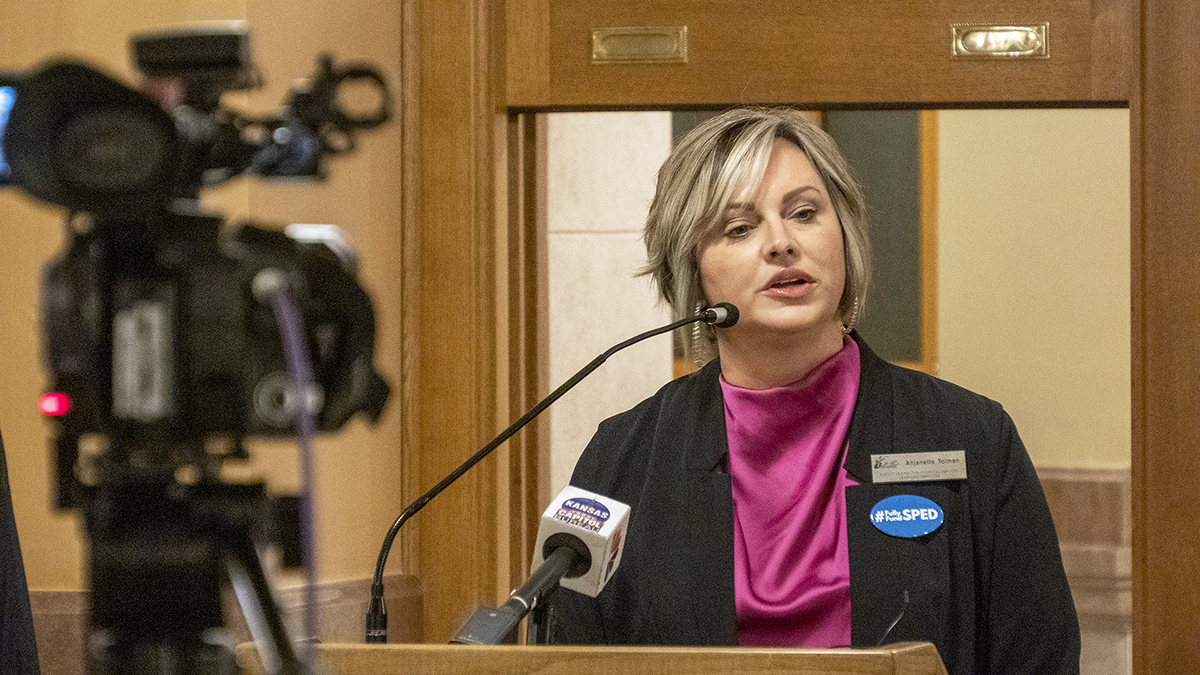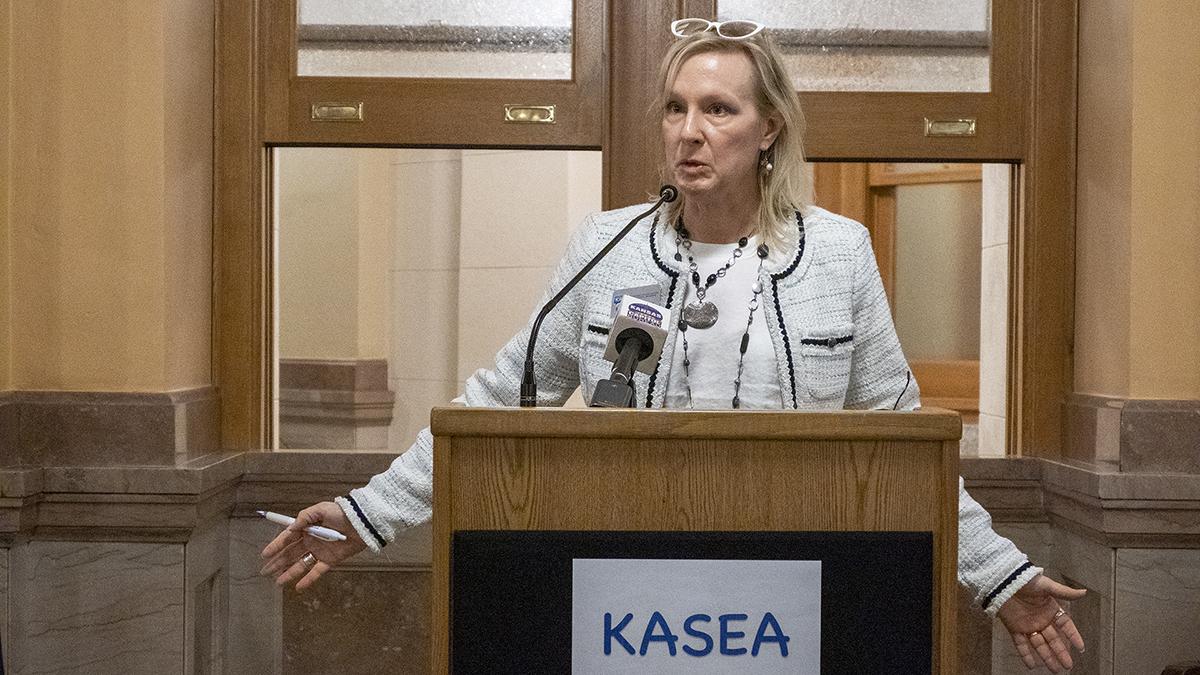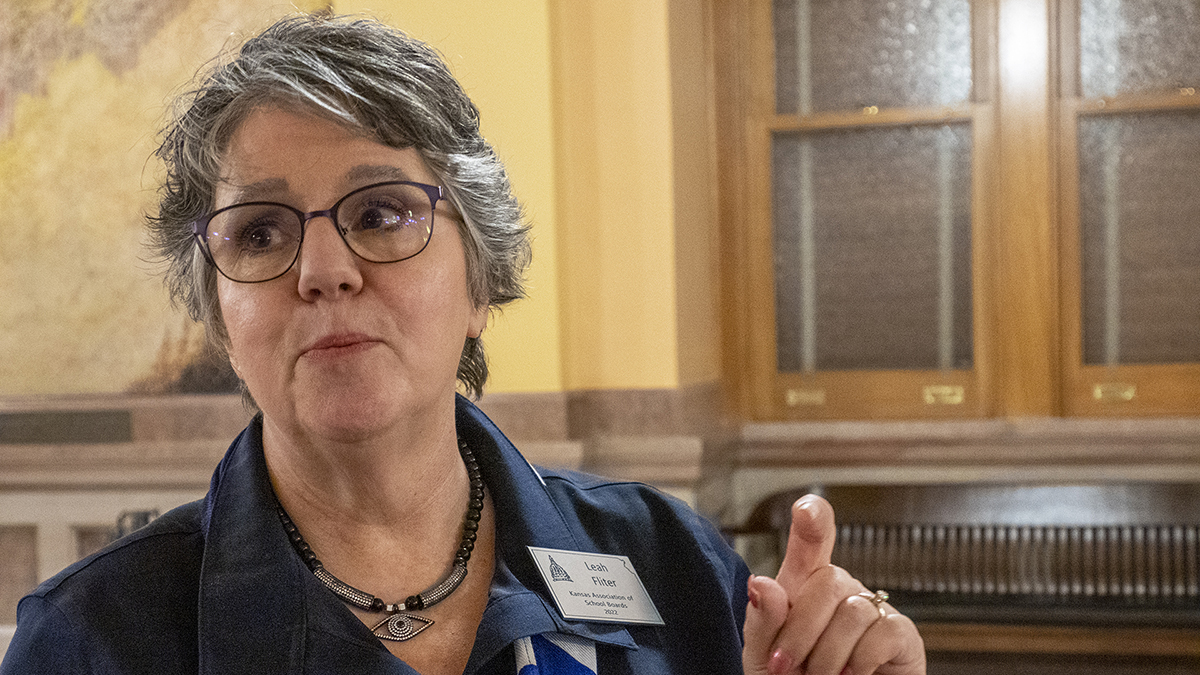Kansas School Leaders Urge Lawmakers to Fully Fund Special Education Services
State hasn’t met special education funding requirement since 2011, leaving school districts to redirect millions from other services

Get stories like this delivered straight to your inbox. Sign up for The 74 Newsletter
TOPEKA — It’s difficult for 6-year-old Crosby Orlando to stay in his first grade classroom.
Born with Down syndrome, he has been in therapy since he was four weeks old to work on behavioral and communication barriers. Orlando is mostly nonverbal and uses signs to communicate with classmates, though he gets restless and wants to run around. Once, he even escaped his Shawnee Mission school.

His mother, Sara Jahnke, said she used to struggle with guilt about the amount of resources Orlando required as a child with extra needs in a classroom setting. Jahnke said she then realized how beneficial being in a classroom was for both him and his classmates.
“They know he’s different and they learn to love him for those differences,” Jahnke said. “Crosby being in the classroom is fantastic. It pushes him to do better, to learn, to grow. But it’s also teaching his classmates a lesson in compassion and acceptance.”
Orlando is one of thousands of Kansas children — one in six of public school students — who receive special education services. But school districts have been forced to shoulder the burden of paying for special education services that are underfunded by the Kansas Legislature. Advocates say there’s a dire need for more money to support special education services, and the state is in a financial position to afford that investment.
Kansas law requires the state to provide 92% of the extra costs of special education, but the Legislature hasn’t met the requirement since 2011, according to the Kansas Association of School Boards. KASB said the current level of funding is at 71% statewide, and districts are having to divert funds from general education programs to pay for special education costs. KASB estimates the gap in funding is about $160 million.

KASB held a news conference Thursday at the Statehouse, following a legislative committee hearing on special education funding, to urge immediate action from lawmakers.
Olathe public schools have around 30,000 enrolled students, with more than 5,000 of these students receiving special education services, according to Anjanette Tolman, executive director of special services for Olathe schools. Tolman said the school district was only funded at 54% last year, and had to use more than $28 million from its general fund budget to cover the difference.
Tolman calculated that the district could hire 350 additional certified staff members, improve school programs and increase pay to school employees if special education were funded at required amounts.
Shawnee Mission schools Superintendent Michelle Hubbard said her district was spending more than $8 million on the funding gap.
With Kansas carrying a record surplus of more than $2 billion, educators said there was no excuse for lawmakers not to fully fund special education.
“In past years, the budget situation has been the reason why they hadn’t,” said Shannon Kimball, president of the Lawrence school board and chairwoman of the KASB Legislative Committee. “You can’t blame it on the budget now, so now they’re looking for other excuses not to fund it. The state has plenty of money to meet these needs.”

Revenue estimates released this week projected an additional $800 million surplus for the current fiscal year and $400 million for next year. Adam Proffitt, Gov. Laura Kelly’s budget director, said Kelly will address special education funding in her January budget.
“Some other things that she’s talked about doing is fully funding special education,” Proffitt said during a Thursday announcement about the state’s revenue forecast. “Not sure what that policy is going to look like, but that’s something that we’ll sit down and talk about later this month and early December.”
Education advocates weren’t happy with Thursday’s special education hearing. Several advocates raised concerns about testimony from Kansas Policy Institute CEO Dave Trabert, saying he blatantly misrepresented special education needs. Trabert is a longtime opponent of funding public schools at constitutionally required levels.
Trabert said school districts weren’t hurt by the lack of government funding for special education.
“Our examination of the facts indicates there is no shortfall in school funding for special education or general education,” Trabert said in testimony for the committee. “Many students may not be getting the education they deserve, but it is not for a lack of funding.”

Leah Fliter, KASB assistant executive director of advocacy, said his testimony was inaccurate.
“There are groups that cherry pick data and present it as fact,” she said in an interview after the hearing. “Meanwhile, they are presented as the experts, and the actual experts who work for the Kansas State Department of Education — who are the real authorities on special education funding — are questioned and belittled and pressed to say where they got their data.”
Kimball said the resistance by lawmakers to invest in special education services was a deliberate attempt to avoid spending money on public education.
“I think that ultimately their goal is to cut public funding in general, and they see this as one avenue that they can try to attack,” Kimball said.
Kansas Reflector is part of States Newsroom, a network of news bureaus supported by grants and a coalition of donors as a 501c(3) public charity. Kansas Reflector maintains editorial independence. Contact Editor Sherman Smith for questions: [email protected]. Follow Kansas Reflector on Facebook and Twitter.
Get stories like these delivered straight to your inbox. Sign up for The 74 Newsletter

;)